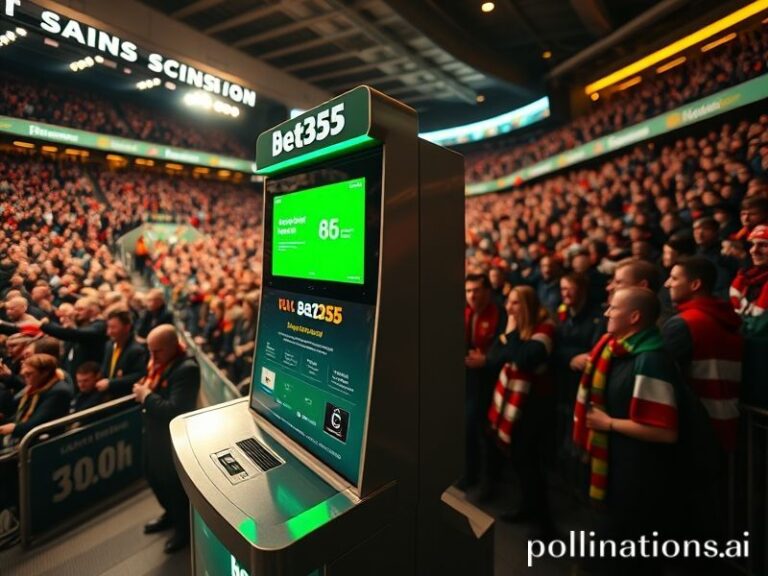Global Sulkonomics: How Bad Moods Became the World’s Hottest Export
Bad moods have gone global, and the planet is now exporting irritability in 4K resolution. From the fluorescent-lit call centers of Manila where operators practice smiling at 3 a.m. to the fog-shrouded cafés of Copenhagen where everyone is still somehow content, humanity has discovered that sulking scales. Moody is no longer a temperament; it is a tradeable commodity, a soft-power index, and—if you believe the Davos crowd—the new crude oil of post-truth geopolitics.
Consider the numbers. The World Sulking Index (WSI) released last week—compiled, of course, by a boutique consultancy no one had heard of until it landed a Times Square billboard—ranks Finland as officially “least moody,” followed by Bhutan, whose citizens are legally required to cultivate Gross National Happiness even when their toast lands butter-side down. At the bottom of the table sits Lebanon, where the electricity schedule is now less reliable than the local weather app’s mood-swing alerts. Analysts insist these rankings are predictive: when a country drops below 40 on the WSI, investors treat it like a crypto exchange with “minor liquidity hiccups.” Bond yields spike, influencers flee, and the IMF parachutes in therapists instead of economists.
The supply chain of sulk is more intricate than a Swiss watch and twice as fragile. Microchip shortages? Amateur hour. Try sourcing premium gloom when half of Gen Z has monetized its existential dread on TikTok, packaging quarter-life crises in thirty-second loops with licensed Billie Eilish snippets. China’s factories, once the workshop of the world, now run night shifts manufacturing artisanal melancholy for export to North American wellness boutiques. Each batch is soy-based, carbon-neutral, and comes with a QR code linking to a playlist of distant thunder recorded in Iceland. The irony, as a Shenzhen shift manager told me between drags of an unfiltered cigarette, is that the workers themselves are “forbidden from feeling anything below mild enthusiasm.” HR monitors facial micro-expressions; frowns are logged as shrinkage.
Meanwhile, the diplomatic front resembles couples therapy on an aircraft carrier. At last month’s G-20 sidebar in Bali, delegates signed the non-binding “Mood Compact,” pledging to reduce trans-border surliness by 15 % before the next election cycle. The United States arrived late, blaming jet lag and a broken espresso machine on Air Force One. France threatened a veto unless the accord included language protecting its right to existential pouting; Germany requested an annex on punctual grumpiness. Russia’s delegate attended virtually, background blurred to hide what looked suspiciously like a bunker, and spent the session insisting sanctions were “harshing his vibe.” Observers noted the compact contains no enforcement mechanism except a strongly worded emoji.
Back home, citizens navigate the new mood economy like amateur currency traders. A startup in Lagos now offers hedging instruments: swap your looming Sunday scaries for a stranger’s midweek malaise, commission 2 %. In suburban Toronto, mood-blockchain enthusiasts trade non-fungible tokens representing specific dysfunctions—insomnia, heartbreak, imposter syndrome—like Pokémon cards for the emotionally bankrupt. The floor price for “vague dread” crashed last Tuesday after a celebrity posted a tearful apology video that saturated the market.
All of this might sound absurd until you realize the profit margins. Venture capitalists have poured eight billion dollars this year into “affective logistics,” the science of moving feelings around the planet at maximum efficiency. One unicorn, MoodPrime, promises same-day delivery of curated ennui via drone, temperature-controlled to preserve that just-woken-up-at-4-p.m. freshness. Their IPO prospectus lists “global despair” as a renewable resource, subject only to regulatory risk if humanity suddenly cheers up.
Perhaps the final frontier is space. Elon Musk’s latest Starship payload includes a canister labeled “Earth’s Residual Angst,” intended as a time capsule for future Martian colonists. The man himself tweeted that extraterrestrial gloom will be “a growth sector by 2040.” Somewhere, a Martian child not yet born is already sighing.
In the end, the international mood is a shared balance sheet: every eye-roll in São Paulo offsets a forced grin in Seoul. The ledger must balance; accountants of the soul are watching. So next time you catch yourself glowering at a headline, remember you’re not merely sulking—you’re participating in the invisible hand of a global sulk market. Try to look busy; the auditors are moody too.







